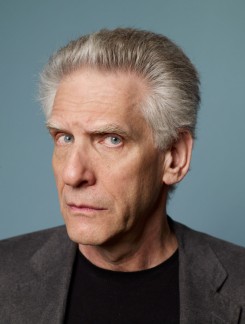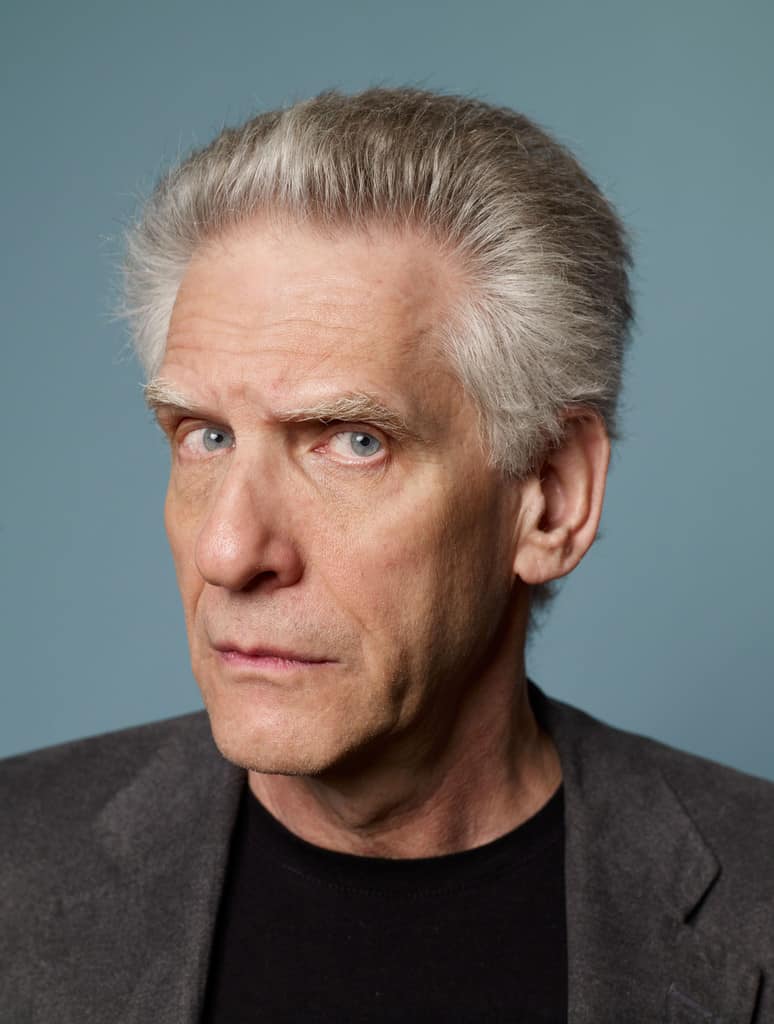Who is my creator? Who am I? Who are we? These three penetrating questions frame David Cronenberg: Evolution, TIFF’s latest retrospective about the major filmmaker. The exhibit charts the development of our very own Canadian filmmaker, David Cronenberg.

MEDIA PHOTO
The exhibition moves chronologically through Cronenberg’s work, which makes it easy to follow his development as a filmmaker. The information panels strike exactly the right balance, describing the themes of Cronenberg’s films in clear and concise language. So if you’ve been reading too many theory texts for class, this is your chance to get some refreshingly digestible information.
Even better, an amazing number of artifacts are on display. There’s the telepod from The Fly, which is even accompanied by the engine from Cronenberg’s Ducati 450 Desmo RT motorcycle that inspired its look. There’s also the cringe-worthy collection of gynecological instruments from Dead Ringers, a full-size mugwump puppet from Naked Lunch (plus a fiberglass replica that you can pose with for a photo), and plenty more. Cronenberg’s films tend to rely on puppets, prosthetics, and makeup rather than computer-generated imagery. Seeing these props live and in the flesh is a delight, even if they also make you squirm.
For University of Toronto students, the exhibition has a number of special treats. First, Cronenberg is a U of T alumnus, so we get bragging rights. The exhibition also reveals some more direct connections between Cronenberg and U of T; his first feature, Stereo, was shot at the Scarborough campus, and his second feature, Crimes of the Future, was filmed at Massey College. If you think U of T has some strange, brutalist architecture, this is your chance to see it at its creepiest.
In the centre of the exhibit, there are two large screens that cycle through interviews with Cronenberg. The interviews are personable, honest, and fascinating. Body horror films can be alienating, but Cronenberg is both eloquent and down-to-earth. It’s well worth the time to sit through a full cycle of the interviews.
The TIFF Bell Lightbox is screening all of Cronenberg’s features and other body horror films over the next few months. Admittedly, Cronenberg films are not the easiest to binge on. Sexuality, technology, and human nature are enduring themes that keep Cronenberg’s films feeling fresh. While you’ll probably feel disturbed, they’re always worth the effort. This retrospective is a good chance to see these films on high-quality screens.
This exhibit and the accompanying guest events and screenings are a perfect opportunity for filmgoers, whether you’re new to Cronenberg or an ardent follower. The panels and Q&A discussions lift off the mystifying veil of filmmaking. A previous TIFF Higher Learning panel event focused on Cronenberg and his frequent collaborators: makeup artist Stéphan Dupuis and producer Jeremy Thomas. The three emphasized the difficulties of making Cronenberg-style movies. Difficulties with financing meant it took eight years to make Dead Ringers, and the Gulf War meant Naked Lunch’s Interzone scenes couldn’t be filmed in Morocco. They were filmed in Toronto instead, like the rest of the movie — not a terrible change for Canadian viewers who like to spot familiar scenery.
The violence and sexual content of Cronenberg’s films might put off some viewers, but when you hear Cronenberg and his collaborators speak, you realize the depth behind these horror films. In one of the exhibition’s interviews, Cronenberg explains that The Fly needed the cover of the horror genre to be made; its central love story is really about assisted suicide in the face of a terminal disease, which he suggests would be too dark to get funded if the movie was of any other genre. The monstrous effects are earnest explorations of what it means to be human. They are not for cheap shock value. Of the many artifacts on display, there is a collection of comment cards from a preview of Videodrome. One suggests: “scrap the grotesque.” Thank goodness he didn’t.
David Cronenberg: Evolution exhibition is open until January 19 at the TIFF Bell Lightbox.


